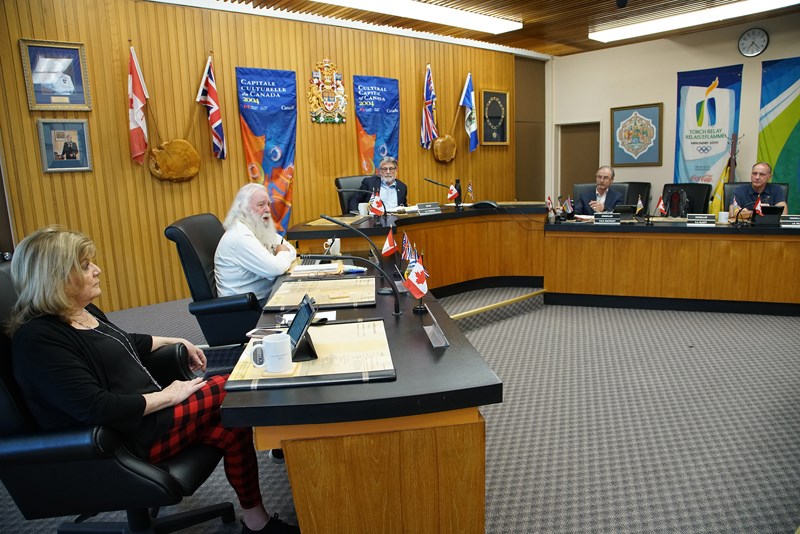City of Powell River Council has approved authorizing up to $13.5 million in borrowing in what is known as a revenue anticipation borrowing bylaw.
At the April 9 city council meeting, councillors approved the bylaw as a contingency if the city does not have sufficient money on hand to meet current lawful expenditures of the municipality.
Councillor George Doubt, chair of the city’s finance committee, said the borrowing is in place to take the city from the time the budget starts until the city actually collects tax money.
“It will help us get through the time between when taxes become due and when they are actually paid,” said Doubt. “This may be the year when we need to do it.”
Councillor Rob Southcott said he was hoping the city did not need to borrow in a significant way but he is presuming it probably will.
“Should we need it I imagine the money will come from the municipal finance authority, or would it come from a commercial source?” asked Southcott.
Chief financial officer (CFO)Adam Langenmaier said the municipal finance authority is the only place the city could borrow from under this bylaw.
Mayor Dave Formosa said the city reviews a similar bylaw every year.
“Let’s just say given this year we have this issue with COVID-19 and we haven’t been able to send out our tax notices, because the provincial government is still trying to decide all of the different moving pieces, and what it is going to offer the cities and offer the public, we get into this and we have to borrow this money,” said Formosa. “I would assume, under the emergency operations centre, and the contract that we signed when we instituted that particular event, the interest that we would have to pay would be recoverable under the emergency programming?”
Chief administrative officer Russell Brewer said that was a consideration being made during a teleconference with provincial minister of municipal affairs and housing Selina Robinson earlier in the day.
“That’s why it’s taking them some time to put together all of the considerations because she did say they were working with the Union of British Columbia Municipalities and the municipal finance authority before they provide some decisions,” said Brewer.
Doubt said a number of different things could happen. One of the scenarios he has heard is that municipalities could make a decision to change the date of tax collection and move it to later in the year, for example, September 1 instead of July 1.
“If that happens, and the CFO could correct me if I’m wrong, there would certainly be a time where we would need the cash to get the city through from July 1 to when those taxes would be collected,” said Doubt. “There would be a cost to that. In my opinion, and I think everyone on councils’ opinion, we would like to see the provincial or federal government share in that cost.”
Doubt said part of the reason he brought a motion to the last council meeting to encourage the province to allow for deferral of municipal taxes was because that allows the provincial government to pay those taxes directly under that program, which would mean a lower cost to the city.
“If there were any changes to the dates of tax collection, that would have a financial impact on the city,” said Doubt. “If there was any change in the date when taxes are collected, that would provide a direct cost to the city under this borrowing bylaw.”
Formosa said the CFO would be providing a report to outline some of the city’s options and issues being discussed to help clarify what the city can and cannot do.
Council unanimously passed the revenue anticipation borrowing bylaw.



